
1.
Stefan Zweig — the renowned Viennese writer who, in the 1930s, chose exile over Adolf Hitler — adored his books. As he moved globally among temporary residences, the collection followed, providing an anchor of stability in a world gone adrift. “They are there,” he wrote of his volumes, “waiting and silent.” It was left to him, the avid reader, to grab them, feel them, and make them speak some measure of sense to his unhinged experience.
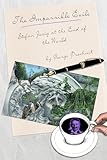 Books offered Zweig, in part, a predictable form of comfort. “They neither urge, nor press their claims,” he observed. “Mutely they are ranged along the wall…If you direct your glances their way or move your hands over them, they do not call out to you in supplication.” In his thoughtful and often riveting book, The Impossible Exile: Stefan Zweig at the End of the World, George Prochnik quotes the author describing how it felt to approach a full bookcase: “A hundred names meet your searching glance silently and patiently…humbly awaiting the call and yet blissful to be chosen, to be enjoyed.” No matter where he lived — New York, London, Rio — Zweig maintained access to this form of bibliophilic bliss to the end.
Books offered Zweig, in part, a predictable form of comfort. “They neither urge, nor press their claims,” he observed. “Mutely they are ranged along the wall…If you direct your glances their way or move your hands over them, they do not call out to you in supplication.” In his thoughtful and often riveting book, The Impossible Exile: Stefan Zweig at the End of the World, George Prochnik quotes the author describing how it felt to approach a full bookcase: “A hundred names meet your searching glance silently and patiently…humbly awaiting the call and yet blissful to be chosen, to be enjoyed.” No matter where he lived — New York, London, Rio — Zweig maintained access to this form of bibliophilic bliss to the end.
2.
Anyone who relates to such an attraction will understand it as an intellectually unique, often aesthetically sublime, experience. And now, according to two Italian economists, it might also be financially beneficial. As reported by one of the weirder studies undertaken last year (focused only on men between 60 and 96), growing up around books — simply existing in their physical presence — corresponded to higher income over time. “Those [kids 10 or older] with many books,” the authors write, “enjoyed substantially higher returns to their additional education.” The media, as you might imagine, feasted on the news. Headlines went from “Books You Should Read to Get Rich” to “Boys Who Grow Up Around Books Earn Significantly More Money.” Who cares if Bill Bill Gates reads 50 books a year? Now all you needed to do — according to the new research — was to put on display at least 10 of them. Ka-ching.
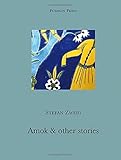
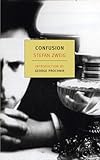
 Zweig grew up around books — more than 10 — and, incidentally, he became rich. His novels — Amok, Confusion, The Royal Game, to name a few — and biographies — on Marie Antoinette and Erasmus most notably — flew from the shelves. He was the most translated German-language writer before World War II. His 1941 autobiography, The World of Yesterday, was recently translated into English and continues to sell at a brisk pace (not everyone is happy is about that). That’s good for Zweig, his legacy, and his fans.
Zweig grew up around books — more than 10 — and, incidentally, he became rich. His novels — Amok, Confusion, The Royal Game, to name a few — and biographies — on Marie Antoinette and Erasmus most notably — flew from the shelves. He was the most translated German-language writer before World War II. His 1941 autobiography, The World of Yesterday, was recently translated into English and continues to sell at a brisk pace (not everyone is happy is about that). That’s good for Zweig, his legacy, and his fans.
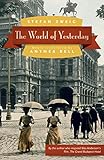 But there’s a distinction to draw here. The economists who conducted the “books make you wealthier” study were merely confirming the point that cultural capital corresponds to book ownership. It’s a point so obvious it’s almost meaningless. Any family who owns books, and considers books to be even symbolically significant enough to display them, is a family that nurtures the educational ethos required to make money. But none of that concerned Zweig. Zweig courted (and carted) his books not for the cultural capital they represented; he did so for their imaginative fertility, their ready source of escapism, the touchstone they offered to an inner reality. Speaking about a room full of books, he once said, “How good it is there to create and be alone.” Their decorative presence took a back seat to their seminal emotional power. It’s what they did for him — his imagination, his sense of self, his rampant curiosity — that mattered most to Stefan Zweig. The wealth was incidental.
But there’s a distinction to draw here. The economists who conducted the “books make you wealthier” study were merely confirming the point that cultural capital corresponds to book ownership. It’s a point so obvious it’s almost meaningless. Any family who owns books, and considers books to be even symbolically significant enough to display them, is a family that nurtures the educational ethos required to make money. But none of that concerned Zweig. Zweig courted (and carted) his books not for the cultural capital they represented; he did so for their imaginative fertility, their ready source of escapism, the touchstone they offered to an inner reality. Speaking about a room full of books, he once said, “How good it is there to create and be alone.” Their decorative presence took a back seat to their seminal emotional power. It’s what they did for him — his imagination, his sense of self, his rampant curiosity — that mattered most to Stefan Zweig. The wealth was incidental.
3.
Zweig’s love of books, considered against their supposed wealth-generating capability, presents a compelling dichotomy that’s quite relevant today: Books as remunerative symbols of educational attainment versus books as objects that allow us to drop out and delve inwards. This dichotomy is relevant because, for one, it fundamentally alters the big question everyone keeps asking about the book as a physical object. No longer is it “will the book endure?” Instead, it’s “why will the book endure?”
Yes the book will endure. Of course the book will endure. You’ve likely heard a million people rhapsodize about the alluring physicality of books. They’re correct to do so. You’ve also likely heard the news that independent bookstores are making a comeback. This is also as it should be. As an empirical matter, reading on a tablet cannot remotely approach the sensual literary experience offered by an old-fashioned book. The latter is, I’d venture, intrinsically more pleasurable than the former, not unlike the intrinsic difference between high quality toilet paper and the sandpaper stuff used in bus stations. And while it’s true that Socrates expressed grave concern that the written word would erode memory and storytelling, his distinguished descendant, Cicero, had it exactly right when he said, “A room without books is like a body without a soul.”
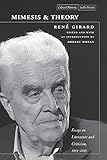 Of course, a room stuffed to the rafters with books can also be as soulless as a tin can. These days, if our Italian economists are right, books are often nothing more than decoration for social strivers. The fact that cultural capital can evidently be correlated with actual capital is another way of saying that a wall of books has nothing necessarily to do with the literary ambitions of the resident reader. Consider the “books by the foot” trend — that is, the option of purchasing random books in bulk for the singular purpose of showing them off rather than reading them. This commercial genre is exceedingly popular with interior decorators, so much so that, as if to stay a step ahead of the skepticism, bulk book suppliers have specialized by tailoring books for the client’s purported general interests (to make it really seem like this is a library reflecting the owner’s personal literary tastes), while still color-coordinating book covers to match the pillow slips. In this respect, the purchase and display of books becomes a conspicuous example of what the late French literary critic René Girard, in Mimesis and Theory, calls “external mediation” — the process whereby a person’s displayed tastes and desires influence those of others — resulting in the cheapest and least meaningful form of imitation.
Of course, a room stuffed to the rafters with books can also be as soulless as a tin can. These days, if our Italian economists are right, books are often nothing more than decoration for social strivers. The fact that cultural capital can evidently be correlated with actual capital is another way of saying that a wall of books has nothing necessarily to do with the literary ambitions of the resident reader. Consider the “books by the foot” trend — that is, the option of purchasing random books in bulk for the singular purpose of showing them off rather than reading them. This commercial genre is exceedingly popular with interior decorators, so much so that, as if to stay a step ahead of the skepticism, bulk book suppliers have specialized by tailoring books for the client’s purported general interests (to make it really seem like this is a library reflecting the owner’s personal literary tastes), while still color-coordinating book covers to match the pillow slips. In this respect, the purchase and display of books becomes a conspicuous example of what the late French literary critic René Girard, in Mimesis and Theory, calls “external mediation” — the process whereby a person’s displayed tastes and desires influence those of others — resulting in the cheapest and least meaningful form of imitation.
4.
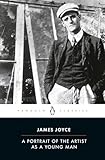
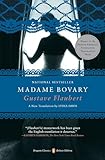 If this is how we’re going to save the book — decorative mimicry — well then, forget it. True believers know that a room with books should accomplish something altogether more subversive and selfishly edifying — that it should foster radical internal mediation rather than decorative inspiration. Books should conspicuously confirm the persistence, in the face of so many competing (and lesser) forms of distraction, of a fierce dedication to promiscuous reading, the kind that requires — a la Zweig — that walls of literature be constantly approached, scanned, and chosen from. And then — the part that we rarely talk about when we talk about books — a roomful of books must be allowed to exact a cost. The thing about a room full of books is that conquering it, living within it as a real reader, treating it as it should be treated, means making sacrifices that deeply effect other human beings — and not always in a good way. The refraction of personal experience, when pursued through a physical book, is ours alone. As Emma in Madame Bovary knew very well, reading was a venue for the most satisfying selfishness. The “reality of experience,” as it’s noted at the end of A Portrait of the Artist as a Young Man, is forged in the smithy of a single soul. When we read we become our own wistful Emma, our own self-absorbed Dedalus. You are with you. That’s it. And people might get annoyed by that.
If this is how we’re going to save the book — decorative mimicry — well then, forget it. True believers know that a room with books should accomplish something altogether more subversive and selfishly edifying — that it should foster radical internal mediation rather than decorative inspiration. Books should conspicuously confirm the persistence, in the face of so many competing (and lesser) forms of distraction, of a fierce dedication to promiscuous reading, the kind that requires — a la Zweig — that walls of literature be constantly approached, scanned, and chosen from. And then — the part that we rarely talk about when we talk about books — a roomful of books must be allowed to exact a cost. The thing about a room full of books is that conquering it, living within it as a real reader, treating it as it should be treated, means making sacrifices that deeply effect other human beings — and not always in a good way. The refraction of personal experience, when pursued through a physical book, is ours alone. As Emma in Madame Bovary knew very well, reading was a venue for the most satisfying selfishness. The “reality of experience,” as it’s noted at the end of A Portrait of the Artist as a Young Man, is forged in the smithy of a single soul. When we read we become our own wistful Emma, our own self-absorbed Dedalus. You are with you. That’s it. And people might get annoyed by that.
5.
 I had to laugh when I read that being around books makes you more money. At the beginning of 2015, I started a well-paying freelance research gig. On paper, it was ideal: I worked from home, I made my own hours, I kept my day job teaching undergraduates, and the topic was interesting enough. The problem was that my home office, where I was to do my research, contains nearly 2,000 books. Many of them I have yet to read. Just as many I want to read again. After a day and half of working in my office, sitting amid these book-lined walls, I was broken by environment. Their visual allure and the promise of what they contained was too much to ignore as I did my official job. My letter of resignation followed. I remember that when my (dumbfounded) employer responded (he said I was “impetuous” and “foolish”) I was reading Middlemarch. A lot of people around me have paid a price for my choice. But Zweig, I am sure, would have approved.
I had to laugh when I read that being around books makes you more money. At the beginning of 2015, I started a well-paying freelance research gig. On paper, it was ideal: I worked from home, I made my own hours, I kept my day job teaching undergraduates, and the topic was interesting enough. The problem was that my home office, where I was to do my research, contains nearly 2,000 books. Many of them I have yet to read. Just as many I want to read again. After a day and half of working in my office, sitting amid these book-lined walls, I was broken by environment. Their visual allure and the promise of what they contained was too much to ignore as I did my official job. My letter of resignation followed. I remember that when my (dumbfounded) employer responded (he said I was “impetuous” and “foolish”) I was reading Middlemarch. A lot of people around me have paid a price for my choice. But Zweig, I am sure, would have approved.






